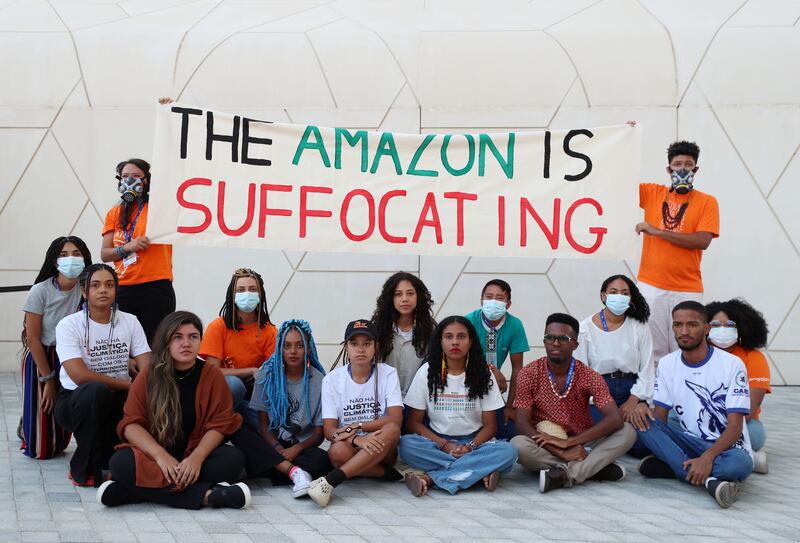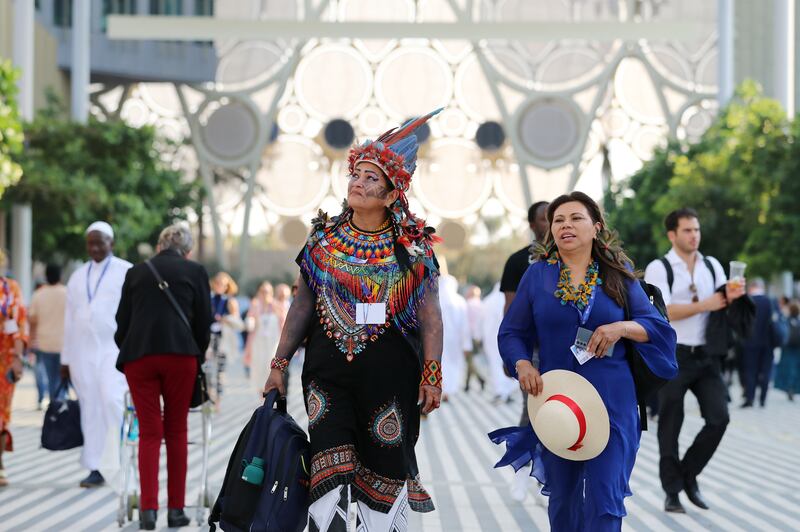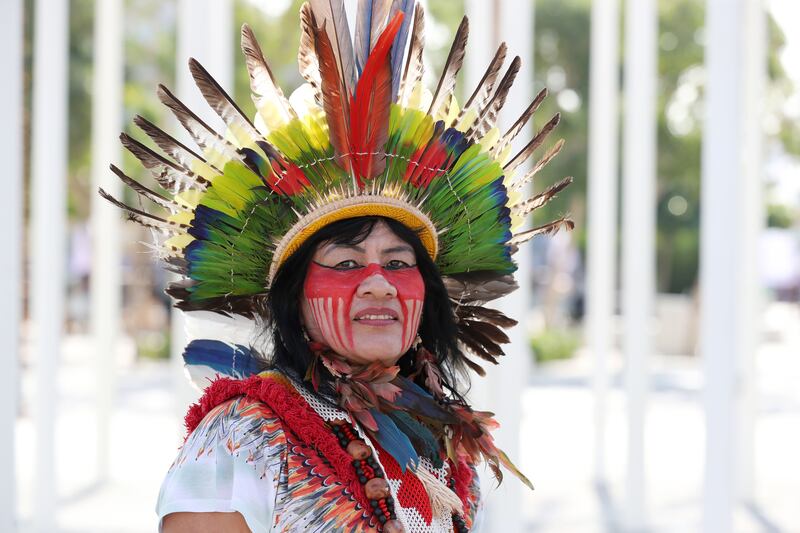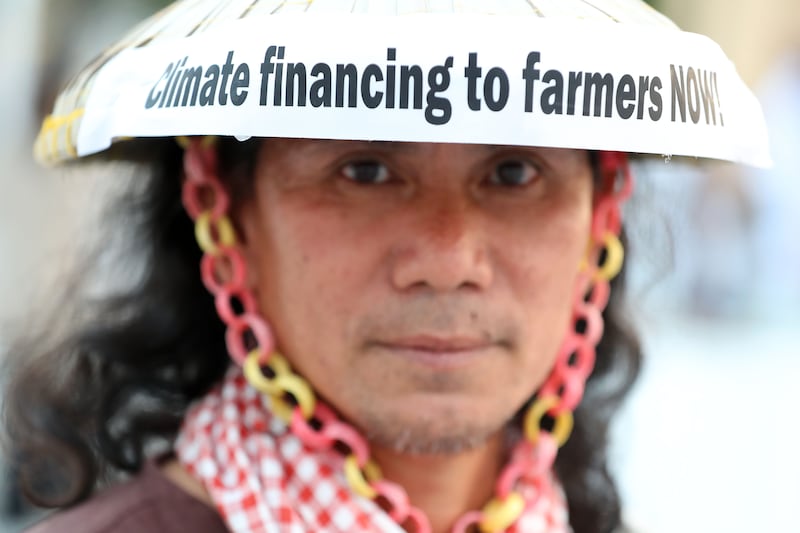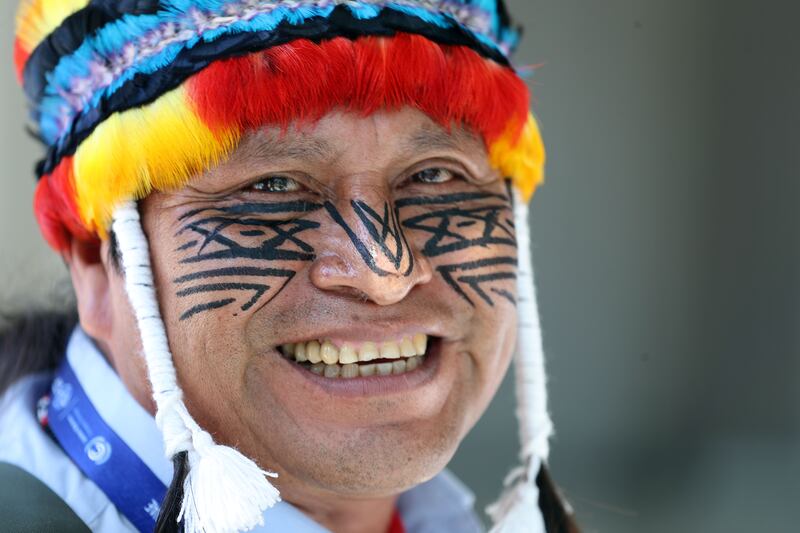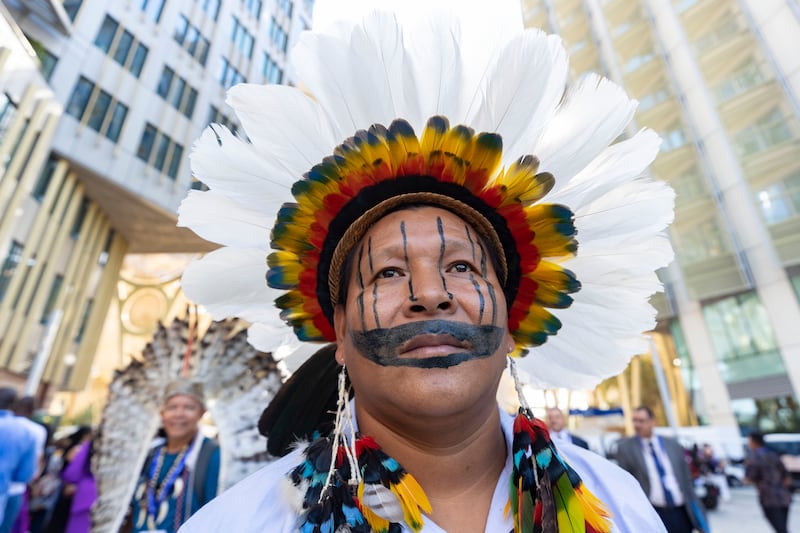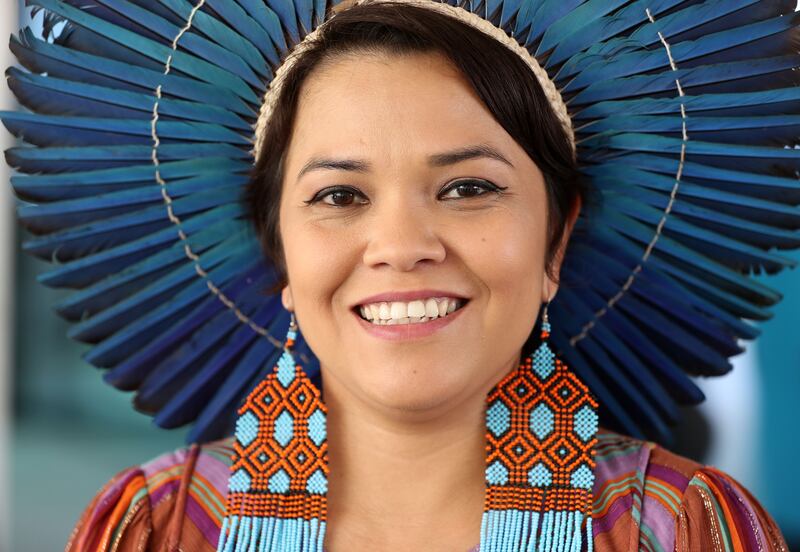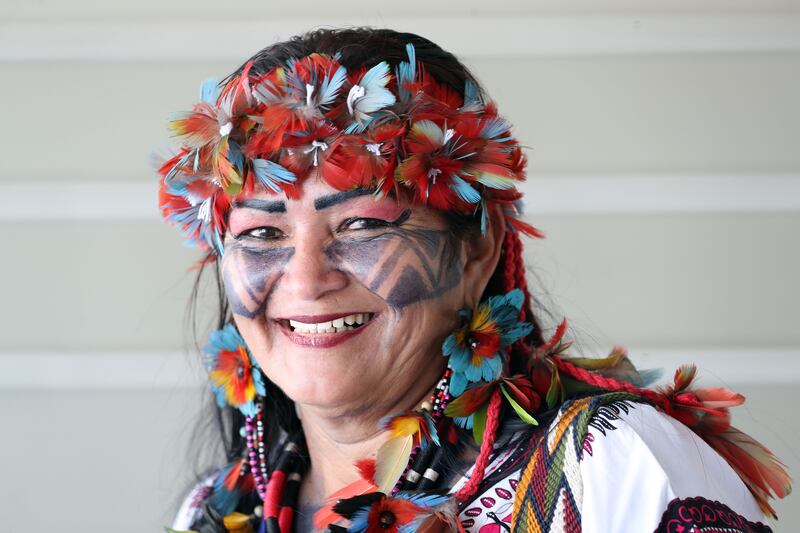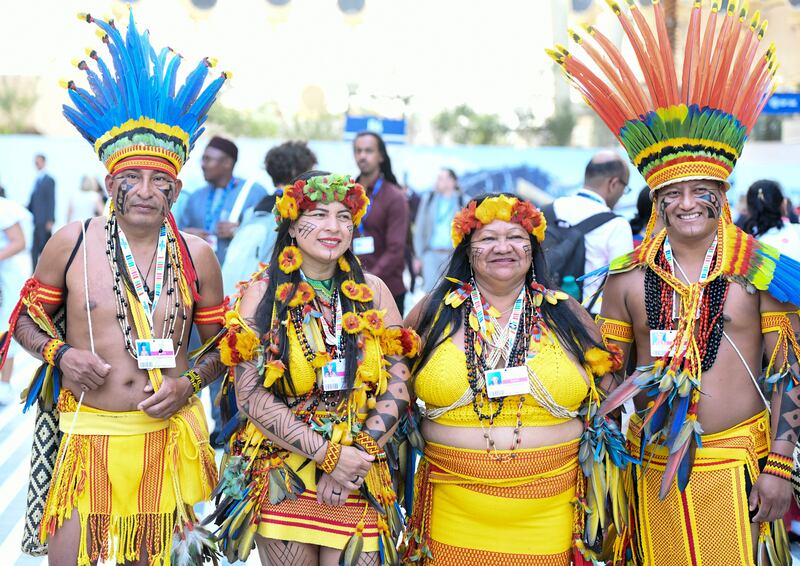Live updates: Follow the latest news on Cop28
Indigenous people representing forest communities in 24 nations have asked that the crucial issue of ancestral land rights, demarcation and safeguarding protected areas are mentioned clearly in the Cop28 global stocktake.
Community leaders from the Amazon and Congo basins, Indonesia and Mesoamerica said indigenous people must be involved in negotiations on the loss and damage fund, adding that the money should be distributed directly to communities to be more effective.
This, they say, is because they are on the front line of the damage caused by climate change.
At a press conference on Tuesday, the leaders asked for a seat at the table during the main negotiations so indigenous voices are included.
“We are worried because it’s as if the indigenous people are still invisible, budgets are going to other areas and we are very lightly mentioned in the global stocktake,” said Levi Sucre, a leader of the Bribri indigenous people of Costa Rica.
Another concern is that while many countries agreed at global events such as the UN climate change conference to consider their demands, there was no action on the ground at home where deforestation and contamination of land and water due to mining continued unabated.
Mr Sucre asked for tighter scrutiny so indigenous peoples' rights to ancestral land can be secured and targeted funding reaches forest areas.
“Countries are not taking into account indigenous people,” he said.
“It seems they are deaf to our concerns. We are directly facing the effects of climate change and cannot live as we used to.
“We will not give up our rights to our forests, our homes.”
He said a major concern was a proposal to drop monitoring indigenous peoples' rights at global gatherings and leaving implementation to individual governments.
“We already know from our experience that our governments do not want to include the full rights of indigenous people in their policies, so renouncing the right to keep following up and monitoring that our rights are recognised is a big worry,” he said.
“There is also no direct investment in our communities – you can give and commit a lot of millions of dollars to fight climate change, as many countries have in previous years but, as the studies keep saying, these funds are not reaching our communities.
“They don’t understand that we represent the forests, we protect the forests and we are not included. It will affect the whole of humanity.”
There are about 370 million indigenous people globally that represent more than 5,000 cultures but very few countries recognise their land rights.
Even where people have legal title deeds to their land, these are still often leased by the state to mining companies or for logging concessions without indigenous communities' consent resulting in thousands of people being evicted, the UN says.
Aissatou Oumarou, of the network of local populations of forests in Central Africa, said indigenous people were being robbed of their dignity and struggling to live in increasing poverty.
She shared a stark message on the displacement communities such as hers experienced.
“Imagine you are asleep and all of a sudden someone comes and takes everything – your bed, your mattress, your home, everything – that is what we experience and they still expect us to breathe.”
Community leaders said they were key to preserving the environment.
“We don’t want to only be the beneficiary, but [we want] have an actual voice,” said Kleber Karipuna, leader of the Karipuna people from Brazil.
“The funding mechanism should be that it actually supports the indigenous people directly and at the local level.”
